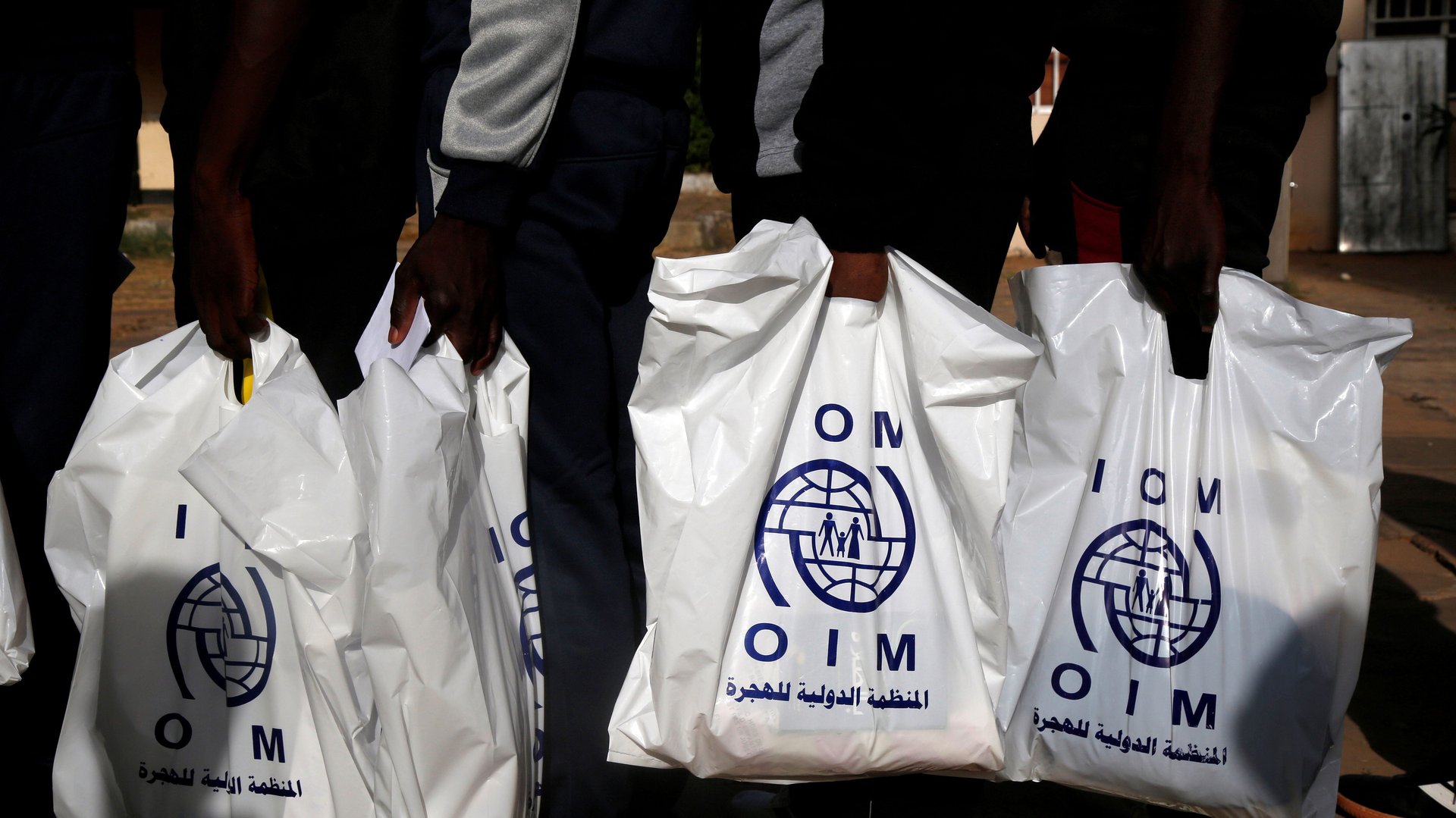How the US lost control of the International Organization for Migration
This post has been updated


This post has been updated
The search for a new leader at the International Organization for Migration (IOM) is normally a predictable affair. Bar one Dutchman, over the past 50 years all of the UN organization’s other directors have been Americans.
The director general of the IOM oversees more than 10,000 staff all over the world, with an annual budget of more than $1 billion. The institution provides critical services, such as assisting newly settled refugees and voluntary repatriation, to both governments and migrants. In recent years, Europe’s migrant crisis and the influx of refugees at the US-Mexico border has thrust the work the organization does into the spotlight.
This year’s election of a new director general, who serves a five-year term, did not follow the usual script. Instead of going with an American, the UN migration agency’s member states elected Antonio Vitorino, a Portuguese former EU commissioner, to lead the IOM instead.
Donald Trump nominated Ken Isaacs, vice president of US evangelical charity Samaritan’s Purse, to take over the role. But shortly after Isaacs was unveiled as a candidate, the Washington Post surfaced old social media posts in which he made controversial remarks about Islam.
Last June, after a terrorist attack in London, Isaacs tweeted: “…if you read the Quran you will know ‘this’ is exactly what the Muslim faith instructs the faithful to do.” In another tweet, he wrote: “If Islam is a religion of peace, let’s see 2 million Muslims in National Mall marching against jihad & stand for America! I haven’t seen it!” Isaacs has since deleted the tweets and apologized for his disparaging comments.
The US state department stood by Isaacs’ nomination for the IOM’s top job. But this hasn’t gone over well among other UN member states. According to Reuters, more than 600 aid agencies that work in migration sent a letter to IOM member states last week, calling on the new chief to demonstrate “a record of and commitment to respecting diversity and condemning xenophobia, discrimination and intolerance.” The letter didn’t mention Isaacs by name, but could be taken as veiled criticism of his candidacy.
Isaacs had also made it clear that he has no intention of challenging Trump’s policies towards migrants, which range from banning citizens of seven Muslim majority nations to, until recently, separating parents and children crossing the US border illegally to seek asylum. “States have a right to protect their borders the way that they deem necessary,” he told Reuters. “If it’s inhumane, then I’ll come back and have private conversations.” Leaders in the development sector have called on Isaacs to “disavow Trump’s migration agenda.”
“The defeat of the United States’ candidate, Ken Isaacs, is a sad statement on U.S. global credibility. Isaacs was a capable relief expert, but carried significant baggage due to offensive prior statements about refugees and migrants,” Jeremy Konyndyk, Senior Policy Fellow at the Center for Global Development, said in a statement sent to Quartz. “But more problematic still was the substance of the Trump administration’s own views on migration – attacking fundamental asylum rights in the United States, banning travel from numerous Muslim-majority countries, devastating refugee resettlement, and most notoriously separating undocumented migrant children from their parents. The world was unlikely to support a U.S. candidate to lead the global migration body under those circumstances.”
Vitorino replaces veteran US diplomat William Lacy Swing.